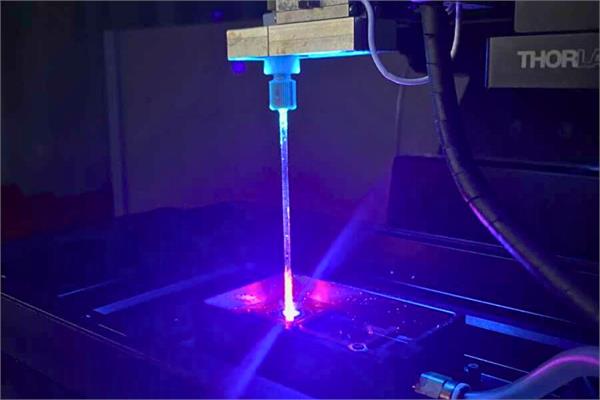
The innovative hydrogel-based coating can prevent limescale adhesion and improve electricity production efficiency in thermoelectric power plants.
Research conducted by a team from the ETH Zurich (Switzerland) and the University of California (United States of America) has developed a special limescale coating with microscopically small ridges to prevent limescale crystals from adhering.
The researchers, led by former ETH professor Thomas Schutzius, analysed the interactions between individual growing limescale crystals, the surrounding water flow and the surface on a microscopic level. So, based on this study, the R&D team developed a series of coatings using soft materials and tested them in the laboratory located at ETH Zurich.
Hydrogel with microstructure is most effective
The most effective coating proved to be a polymeric hydrogel, the surface of which is covered with tiny ridges thanks to micro-textured moulds produced using photolithography. The microstructure of the hydrogel is reminiscent of natural patterns, such as the scales of sharks, as they have a ribbed structure to eliminate fouling on their skin as well. The water flowing over the hydrogel, passing through the ribbed structure, removes some of the scale crystals, but does not prevent their total removal. Nevertheless, the constant passive removal of the microscopic crystals prevents them from growing by forming a tenacious layer.
In order to produce the coatings, the researchers mainly varied the polymer content: the lower the polymer content and the higher the water content - the less the calcium carbonate crystals adhere to the surface. Tests with model polystyrene particles show that the surface structures of the coating must be smaller than the particles deposited on it, reducing the contact surface and consequently the adhesive force.
The team's experiments show that the hydrogel coating is very effective. In fact, when water flows over the hydrogel-coated surface, on which limestone crystals of approximately 10 µm had previously grown, up to 98% of the crystal content is removed.
Eco-friendly solution
The researchers point out that their solution is greener and more efficient than existing approaches to descaling, as some of them involve the use of toxic and aggressive chemicals. In contrast, the hydrogel is biocompatible and environmentally friendly. The technology behind this solution should also be scalable, making the applicability of the coating easy thanks to methods already on the market.